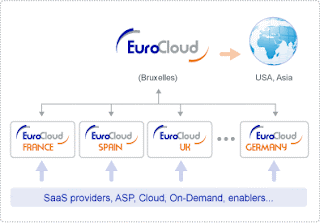This week I begin a new and exciting phase of my professional career by joining the
NJVC Enterprise Management Team!
For those unfamiliar,
NJVC is one of the largest information technology (IT) solutions providers supporting the United States Department of Defense. The company provides quality IT solutions to the federal government and specializes in supporting intelligence, defense and geospatial organizations, including its largest customer, the
National Geospatial-Intelligence Agency (NGA). NJVC has more than 1,100 employees located in three offices, including its headquarters in Vienna, Va., and facilities in Arnold and St. Louis, Mo.
In joining the company as an Engineering Fellow, my initial and complementary duties will be to:
- Serve as an Enterprise Management Officer on a team of watch officers responsible for delivering high satisfaction to our customers through efficient management of day-to-day activities; and
- Support the company's newly announced cloud computing solution, specifically designed to address the unique security requirements of the intelligence and defense communities.
As my regular readers know, the use of cloud computing technologies to support DoD and intelligence community missions is a personal passion. NJVC is realizing this promise by implementing a secure, reliable and cost-effective private cloud solution powered by the
Appistry CloudIQ Platform. I am proud to join NJVC in providing this solution offering to its customers, allowing them to concentrate resources on their core missions. The value of the cloud computing approach was clearly demonstrated during a secure cloud computing pilot study at the company's Center for Technology Integration facility, which accurately simulates the enterprise environment of a large intelligence community network. Pilot result analysis showed astounding performance gains.
I look forward to continuing this ongoing dialog with you, my readers, and welcome your comments and/or inquiries.
Our commitment is unwavering.
Day in and day out, our 1000+ dedicated and talented employees go to extraordinary lengths to provide the best IT services possible, so our customers are free to concentrate on their mission. NJVC provides a full lifecycle of secure, innovative ITIS solutions for some of the world's most demanding customers. With a passion for doing things faster, better and smarter - and technical expertise to deliver - NJVC is driven by your mission.
(
Thank you. If you enjoyed this article,
get free updates by email or RSS - KLJ )


